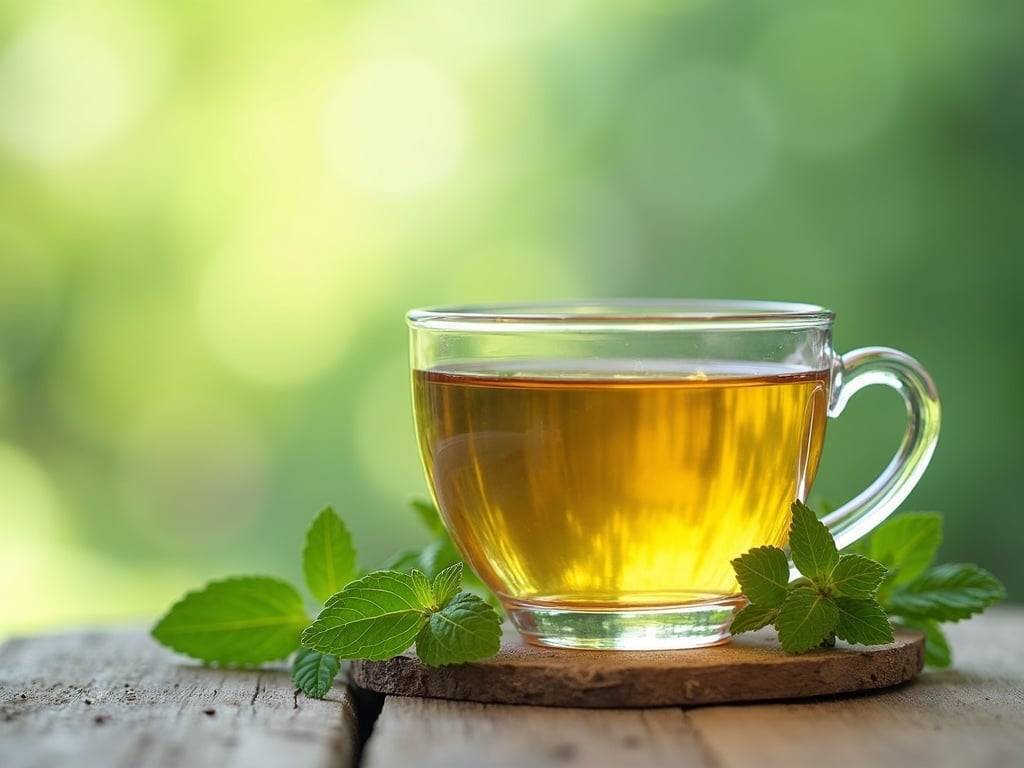Soothe Your Gut: How Peppermint Tea Can Relieve Bloating and Gas
Imagine this: You've just finished a delicious meal, but instead of feeling content, your stomach is churning, and you're battling uncomfortable bloating and trapped gas. It's a familiar scenario for many, and the quest for relief can feel endless. But what if a simple, fragrant cup of tea could offer a natural solution? Enter peppermint tea, a herbal remedy celebrated for its digestive benefits. Let's explore how this refreshing brew can help ease bloating and gas, turning post-meal misery into peaceful comfort.
Understanding Bloating and Gas: Why Does It Happen?
Bloating and gas are common digestive complaints characterized by a feeling of fullness, tightness, or swelling in the abdomen, often accompanied by excessive flatulence. But what causes these uncomfortable symptoms in the first place?
Several factors can contribute to bloating and gas, including:
- Dietary Choices: Certain foods, like beans, lentils, broccoli, and carbonated beverages, are notorious for producing gas. High-fat foods can also slow down digestion, leading to bloating.
- Swallowing Air: We all swallow air throughout the day, but habits like eating too quickly, chewing gum, or drinking through a straw can increase air intake, contributing to bloating.
- Digestive Disorders: Conditions like irritable bowel syndrome (IBS), small intestinal bacterial overgrowth (SIBO), and celiac disease can disrupt normal digestion and lead to increased gas production and bloating.
- Food Intolerances: Lactose intolerance or gluten sensitivity can cause digestive upset, including bloating and gas, when the offending foods are consumed.
- Hormonal Changes: Fluctuations in hormone levels, particularly in women during menstruation, can affect digestive function and contribute to bloating.
The Magic of Peppermint: How It Works
Peppermint (Mentha piperita) has been used for centuries for its medicinal properties, particularly in soothing digestive ailments. The key to its effectiveness lies in its active compound, menthol. Menthol has a relaxing effect on the smooth muscles of the gastrointestinal tract. This relaxation can help to:
- Reduce Spasms: Menthol can help alleviate painful intestinal spasms that contribute to bloating and discomfort.
- Promote Gas Release: By relaxing the digestive muscles, peppermint allows trapped gas to pass more easily, relieving bloating.
- Improve Digestion: Peppermint can stimulate bile production, which aids in the digestion of fats, potentially reducing bloating caused by slow digestion.
- Reduce Inflammation: Peppermint possesses anti-inflammatory properties that can help soothe an irritated digestive system.
Peppermint Tea: A Delicious Remedy
One of the easiest and most enjoyable ways to harness the power of peppermint is through peppermint tea. It’s a naturally caffeine-free beverage, making it a soothing choice any time of day.
How to Brew the Perfect Cup
Making peppermint tea is simple:
- Gather Your Supplies: You'll need peppermint tea bags or loose-leaf peppermint, hot water, and a mug.
- Heat the Water: Bring fresh, filtered water to a boil.
- Steep the Tea: Pour the hot water over the tea bag or loose-leaf peppermint in your mug. Use about 1 teaspoon of loose-leaf tea per cup of water.
- Brew Time: Let the tea steep for 5-10 minutes, depending on your desired strength. Longer steeping times will result in a stronger, more intense flavor.
- Enjoy: Remove the tea bag or strain the loose-leaf tea. Sip slowly and savor the refreshing flavor.
When to Drink Peppermint Tea for Bloating and Gas
For optimal relief, consider drinking peppermint tea:
- After Meals: A cup of peppermint tea after a meal can aid digestion and prevent bloating and gas from developing.
- When Bloating Occurs: If you're already experiencing bloating, peppermint tea can help ease the discomfort and promote gas release.
- Before Bed: Enjoying a cup of peppermint tea before bed can help relax your digestive system and promote restful sleep.

Beyond Tea: Other Ways to Incorporate Peppermint
While peppermint tea is a convenient option, there are other ways to incorporate peppermint into your routine:
- Peppermint Oil Capsules: Enteric-coated peppermint oil capsules are specifically designed to release in the intestines, providing targeted relief from IBS symptoms, including bloating and gas.
- Fresh Peppermint Leaves: Add fresh peppermint leaves to salads, smoothies, or homemade iced tea for a refreshing flavor and digestive benefits.
- Peppermint Essential Oil: Diffusing peppermint essential oil can help relax the mind and body, potentially indirectly aiding digestion. However, never ingest peppermint essential oil.
Precautions and Potential Side Effects
While peppermint tea is generally safe for most people, it's essential to be aware of potential precautions and side effects:
- Heartburn: Peppermint can relax the lower esophageal sphincter, which can worsen heartburn in some individuals. If you experience heartburn after drinking peppermint tea, discontinue use.
- Drug Interactions: Peppermint may interact with certain medications, such as antacids and some blood pressure medications. Consult with your doctor if you are taking any medications.
- Pregnancy and Breastfeeding: While generally considered safe in moderate amounts, pregnant or breastfeeding women should consult with their doctor before consuming peppermint tea regularly.
- Infants and Young Children: Peppermint tea is not recommended for infants and young children due to the risk of choking and potential digestive upset.
Lifestyle Changes to Complement Peppermint Tea
Peppermint tea can be a valuable tool in managing bloating and gas, but it's most effective when combined with other lifestyle changes:
- Eat Slowly and Mindfully: Pay attention to your food and chew thoroughly to reduce air swallowing and promote better digestion.
- Avoid Trigger Foods: Identify and limit or eliminate foods that trigger bloating and gas. Common culprits include beans, lentils, cruciferous vegetables, and carbonated beverages.
- Stay Hydrated: Drinking plenty of water helps keep things moving in your digestive system and prevents constipation, which can contribute to bloating.
- Exercise Regularly: Physical activity can stimulate digestion and help relieve bloating. Even a short walk after meals can make a difference.
- Manage Stress: Stress can negatively impact digestion. Practice stress-reducing techniques like yoga, meditation, or deep breathing exercises.
When to See a Doctor
While peppermint tea and lifestyle changes can often provide relief from occasional bloating and gas, it's essential to seek medical advice if your symptoms are severe, persistent, or accompanied by other concerning symptoms, such as:
- Severe abdominal pain
- Unexplained weight loss
- Blood in your stool
- Changes in bowel habits
- Persistent nausea or vomiting
These symptoms could indicate an underlying medical condition that requires diagnosis and treatment.
The Bottom Line: Embrace the Soothing Power of Peppermint
Bloating and gas can be uncomfortable and frustrating, but they don't have to rule your life. Peppermint tea offers a natural and delicious way to soothe your digestive system, relieve bloating, and promote overall gut health. By incorporating peppermint tea into your routine, along with mindful eating habits and healthy lifestyle choices, you can effectively manage bloating and gas and enjoy a more comfortable and fulfilling life. So, brew a cup, relax, and let the soothing power of peppermint ease your digestive woes. Your gut will thank you for it!

